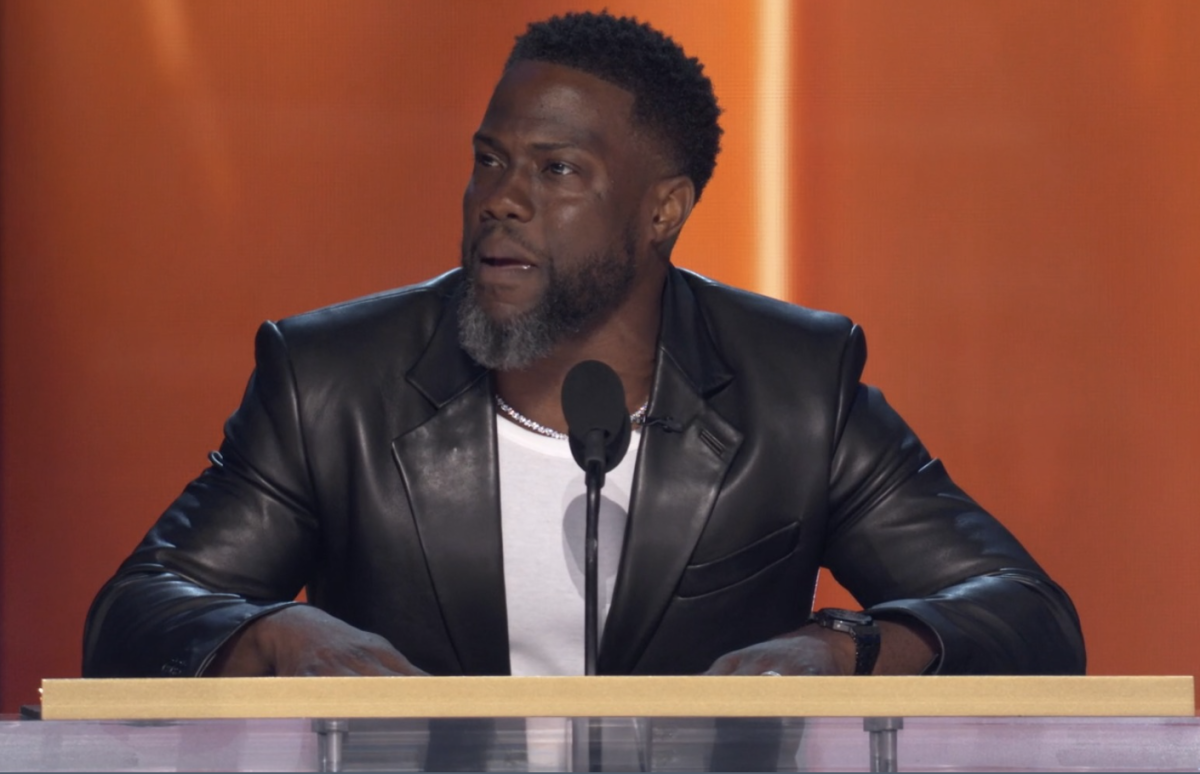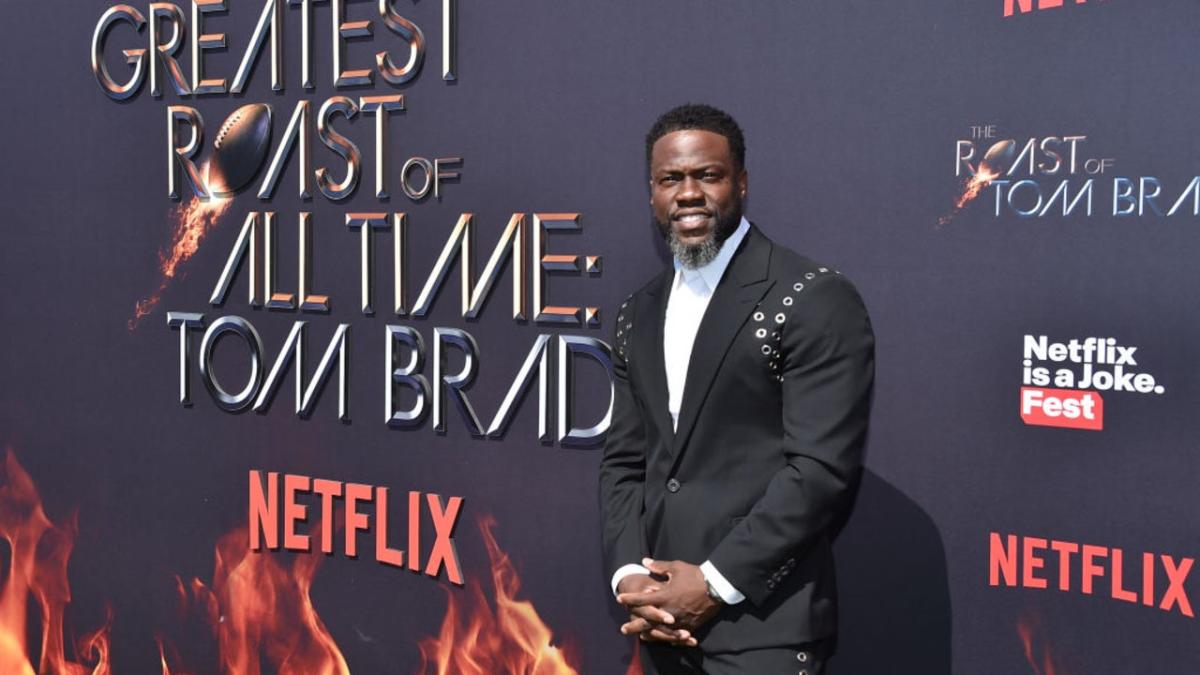
Since professional wrestling is scripted, wrestler perception and popularity is largely subjective. The writers can try to “push” a particular wrestler; on the flip side, a wrestler who genuinely connects with fans (see: Rhodes, Cody) will, in time, feature in more prominent storylines and rise to the top.
The wrestlers themselves also dramatically affect how the fans perceive a competitor. Say you and I are wrestling: if I shrug off your seemingly feeble attacks on the way to a dominating victory, the crowd will naturally assume you’re terrible.
But if I “sell” your punches? If I sell your holds? If make it seem you inflicted real damage, while somehow still managing to pull off the win? Even though you lost, the fans will see you as a great wrestler.
In wrestling terms, I can “put you over.” I can, through words and actions, show people you’re skilled, talented, and deserving of respect.
Just like Kevin Hart did for Nikki Glaser during the Tom Brady roast. (Not that she needs anyone to put her over; she’s an incredible comic.) Check out Glaser’s set, which starts at the 40-minute mark. She makes a Kevin Hart “short” joke. He sells it. She makes a joke about him and the Rock; he stands and claps. He stands and claps after her Brady jiu-jitsu joke. He stands and points and belly laughs after her Gronk “me know that not real money” crypto joke.

When he returns to the podium after her set, Hart says:
For those that are watching at home, this is live — and that was a standing ovation. Well f-ing deserved.
Well deserved. I love Nikki.
His actions during her set, and those last five words, are Kevin Hart selling Nikki Glaser. That’s Hart putting Glaser over. (Again, not that she needed it.)
It feels genuine. It feels real, even in a setting that is at least somewhat compettitive; during a roast, the audience can’t help but keep an informal scorecard. While Glaser didn’t need Hart’s validation, he freely offered it.

And so can you.
Granted, entrepreneurs are especially vulnerable to hogging the glory, since early on your business is a reflection of you, and its success often depends not only on your skills, but also your ability to build a reputation for knowledge and expertise. Plus, it’s easy to forget the contributions of others when your primary focus is, understandably, on crafting a professional image, creating a personal brand, or even just protecting your marketplace turf.
And then there’s this: standing in the spotlight is an extremely hard habit to break. (See Musk: Elon.)
But it can be done. Many of your employees and customers deserve to be “put over,” and doing so is easy.

For example:
- Instead of leading an implementation meeting, turn it over to the employee who spearheaded the project. Don’t be tempted to somehow include yourself in the introduction. Just say, “Next week we’re rolling out a new fulfillment process. Mary will walk you through the process her team created.”
- Instead of social media posts about your company’s success, talk about a customer. If a customer did something smart, share it. If a customer took a different approach to an old problem, share it. Just don’t make it “salesy,” or in some reflecting on your business, like, “Thanks to our groundbreaking new widget, so-and-so was able to cut waste by 10 percent!” Ugh.
Whenever you put someone else over, they win.
And so do you.
As longtime GE CEO Jack Welch once told me:
If a leader didn’t desperately want to give raises, to promote people, if they didn’t get as much satisfaction from other people’s success as they did from their own… I have never seen a great leader that didn’t have the “generosity gene.”
Take care of your people, let them know where they stand, cheer them, never take credit for what they do, and they’ll go to the moon for you.
Does Kevin Hart selling Nikki Glaser’s set diminish him in any way? Absolutely not. It elevates her. It elevates him.






